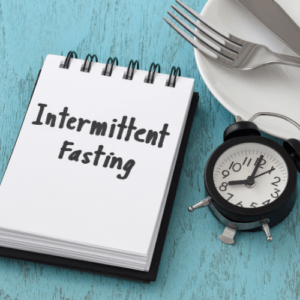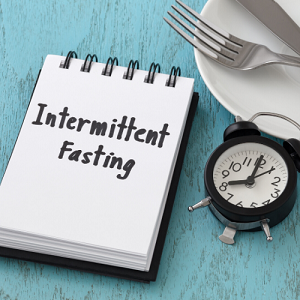 There is numerous research that has been conducted on IF. In a study made on fat rats, it was found that they lost weight, and had improved cholesterol, blood sugar and blood pressure levels.
There is numerous research that has been conducted on IF. In a study made on fat rats, it was found that they lost weight, and had improved cholesterol, blood sugar and blood pressure levels.
A similar study conducted on humans showed almost similar results. Intermittent Fasting was proven in these studies to be safe and really effective. IF is comparable with other diets. Some find them to be similar in effect while others complain of difficulty sustaining the fast.
Intermittent Fasting or Intermittent Energy Restriction, consists of a cycle of a period of fasting followed by a period of eating. It is designed that daily calorie intake is reduced wherein the dieter is allowed only to eat with a specified eating period and must refuse any food intake except water or tea during the period of fasting.
The most commonly used method of intermittent fasting is the “Time Restricted Eating” or TRE. This method suggests an eating period within the range of 4-12 hours. But dieters would usually have an 8 hour eating period followed by 16 hours of fasting or the 16/8 intermittent fasting.
The effectiveness of IF on weight loss, researchers suggest, depends largely on the timing of the fast, meaning the period of eating and fasting intervals. When a dieter is able to find the most suitable and effective cycle of the periods of fasting and eating, it makes intermittent fasting sustainable and realistic for weight loss and even for prevention of diabetes.
The Backstory

Intermittent Fasting was introduced sometime in 2012 by BBC journalist Dr. Michael Mosley in a documentary “Eat Fast, Live Longer”. Later followed by a book he published “The Fast Diet.”
Another journalist by the name of Kate Harrison also released a book titled “The 5-2 Diet”. The said book was written out of her own experience. And finally Dr. Jason Fung released his literary creation in the book “The Obesity Code”. This nailed down the nail as it became a bestseller and so Intermittent Fasting rose to popularity.
Can Intermittent Fasting Help in Weight Loss
Let us look at the science that would make sense of how Intermittent Fasting works to help in weight loss.
When we eat, the food that reaches our gut is broken down by enzymes to become molecules in the bloodstream. Carbs in refined grains such as white flour and rice, and sugars are broken down and converted to glucose for energy use of our body. When the body has not much need for energy consumption, extra glucose from the food we eat is stored as fats. A hormone from the pancreas we call insulin helps bring glucose to the fat cells and stores it there.
During the period of non-eating (no snacks in between) when on an intermittent fast, insulin levels normally decrease which triggers the fat cells to release stored glucose for energy consumption. When insulin levels decrease, fat is burned and we lose weight. The thought behind IF is to let the body’s insulin level decrease far and long enough to let the body burn its own stored fat.
Many would like to think that Intermittent Fasting may be difficult to start with… but wait maybe just maybe it really needn’t have to be!
Initial studies looking into fasting every other day against eating less every day revealed that both worked equally for weight loss. But some expressed difficulty in adopting to a longer period of the day without food. This is the reason that a few have also expressly advised against it and recommended instead to stick to a more plant-based diet like the Meditteranean Diet.
However, recent and newer studies have shown a significant development in Intermittent Fasting. Some of the methods used in IF are really effective, reasonable and sustainable most specially if it is combined with a well planned, nutritious and plant-based diet and proper exercise.
Because of these current improvements and modifications of IF, many have actually abandoned their initial negativity to this diet method and have chosen to evolve and get in sync with the “eat and fast” cycle of the IF diet.
It is found that the metabolism of the body is rather more adaptive to daytime food and sleeping at night. Conversely, if we restrict eating to daytimes and sleep at nighttimes as intermittent fasting suggests, it would mean better capability of the body’s metabolic process which also means better consumption of stored fat and therefore more fat burn and we lose weight. In fact eating at night has been associated with diabetes and obesity.
Studies from the University of Alabama on a small group of men who were obese and on a pre-diabetes stage revealed that: Those who underwent a method of intermittent fasting called the “early time-restricted feeding”were made to eat all meals of the day only within the eating period of 8 hours between 7am to 3 pm, showed significantly relevant results. As against the group that ate their meals within a 12 hour window, the eight-hours group showed significantly lower insulin levels with an improved insulin sensitivity. They also showed a lowered blood pressure. And the most incredible part is that they showed a significant decrease in appetite, often with no to lesser hunger pangs. And they were not starving at all.
Both groups were not restricted as to the food they eat, except the time they are allowed to eat, and both showed that they did not lose a single pound during the experiment.
The logical conclusion that can be said here is that a change in meal timings, such as eating earlier in the day and having the night fast increased the body’s metabolic processes, even if one is not able to lose a pound.
How does meal timing help?
If meal timing is that significant, how is it able to benefit and create a difference in the body. If intermittent fasting is as good as it suggests it is, what good can we get out of it?
A deeper study on this matter published by the New England Journal of Medicine gives us a valid explanation. It said that fasting is actually entwined in man’s psychology as he evolved, it said it can trigger numerous important cellular functions in the body that can affect weight loss and other health benefits.
When we switch between periods of eating and fasting or body burn fat for fuel and we lose weight. But it does not just stop there.
Researcher after going through dozens of studies on animals and humans found that even a simple fast can improve metabolism, lessens inflammation, lowers blood sugar and an improvement of a range more of issues from asthma to arthritic pain. It can help get rid of toxins from the body and help in the repair of damaged cells. It enhances brain functions and lowers the risk of cancer.
Is Intermittent Fasting Really Good as It Sounds to Be?
Ordinarily dieters who have had results with IF says it is good as it says it is. But let us ask the opinion of a metabolic expert such as Dr. Deborah Wexler, Massachusetts General Hospital Diabetes Center, director and associate professor of the Harvard Medical School. She said that, “evidence to suggest that the circadian rhythm fasting approach, where meals are restricted to an 8 to 10-hour period of the daytime, is effective.”
Dr. Wexler further advised dieters, to let them, “use an eating approach that works for them and is sustainable to them.”
At this juncture it is safe to say that there is scientific evidence confirming that a circadian rhythm fast, with a nutritious and healthy diet coupled with an active and healthy lifestyle is an effective and sustainable solution to weight gain. It is also particularly helpful for people with diabetes.
Nevertheless, caution must still be observed by the following groups of people when opting to start or continue intermittent fasting. Those suffering from advanced diabetes or are under medications for diabetes. Those suffering from eating disorders such as bulimia and anorexia, those pregnant and breastfeeding women, or any other physical ailment for that matter.
Whether with physical concerns or not, it is still highly advisable to consult your doctor for advice and proper guidance before starting or continuing an intermittent fast.
For Better Health Results Try These 4 Important Tips
- Limit if not avoid refined grains and sugary foods. Grab instead some vegetables, fruits, lentils, beans, lean proteins, and healthy fats and whole grains, more like a sensible, plant-based, Mediterranean-style diet.
- Avoid snacking. Allow the body to burn fat in between meals. Do not forget to exercise to build muscle. Lead an active lifestyle. Forget the elevator if you can help it. Walk to your office or home. Park farther in a car park. Stand up and walk once every 1-2 hours of sitting.
- Try a simple and easy form of intermittent fasting. Choose a method where you eat during the day and your fast to last during sleep time and a little beyond. The 16/8 intermittent fast is proven to be effective. Just get your right timing of the cycles of eating and sleeping. If you are an early riser, you can also choose to start early like make your eating window between 7am to 3pm. If not choose the eating window between 12:00 noon time to 8 o’clock in the evening.
- Absolutely NO to midnight snacks. Or better yet, no snacking during your fasting period except tea or water for hydration.
As in any other kind of diet, the goal is always to lose weight, improve looks or become healthy. Intermittent Fasting is just a method to achieve these goals. But it is not a stand alone solution. You need to incorporate good exercise routines and healthy food choices. Determination and patience is likewise necessary to achieve your weight goals.
If for us weight gain is a problem, then let it be said that we ourselves are also the beginning of any solution to address the problem. Once we get ourselves resolved to finally look sexy and feel healthy, then we should be ready to start our chosen diet method. You are then ready to start your intermittent fasting.
Recommended Post For You
- Leptitox Solution Reviews – The Best Way To Lose Weight Fast
- Custom Keto Diet Review – The Truth You Need To Know!
- Does Intermittent Fast Work For Gaining Or Losing Muscle?
- Can Probiotics Help In Weight loss? Check The Facts Here!
